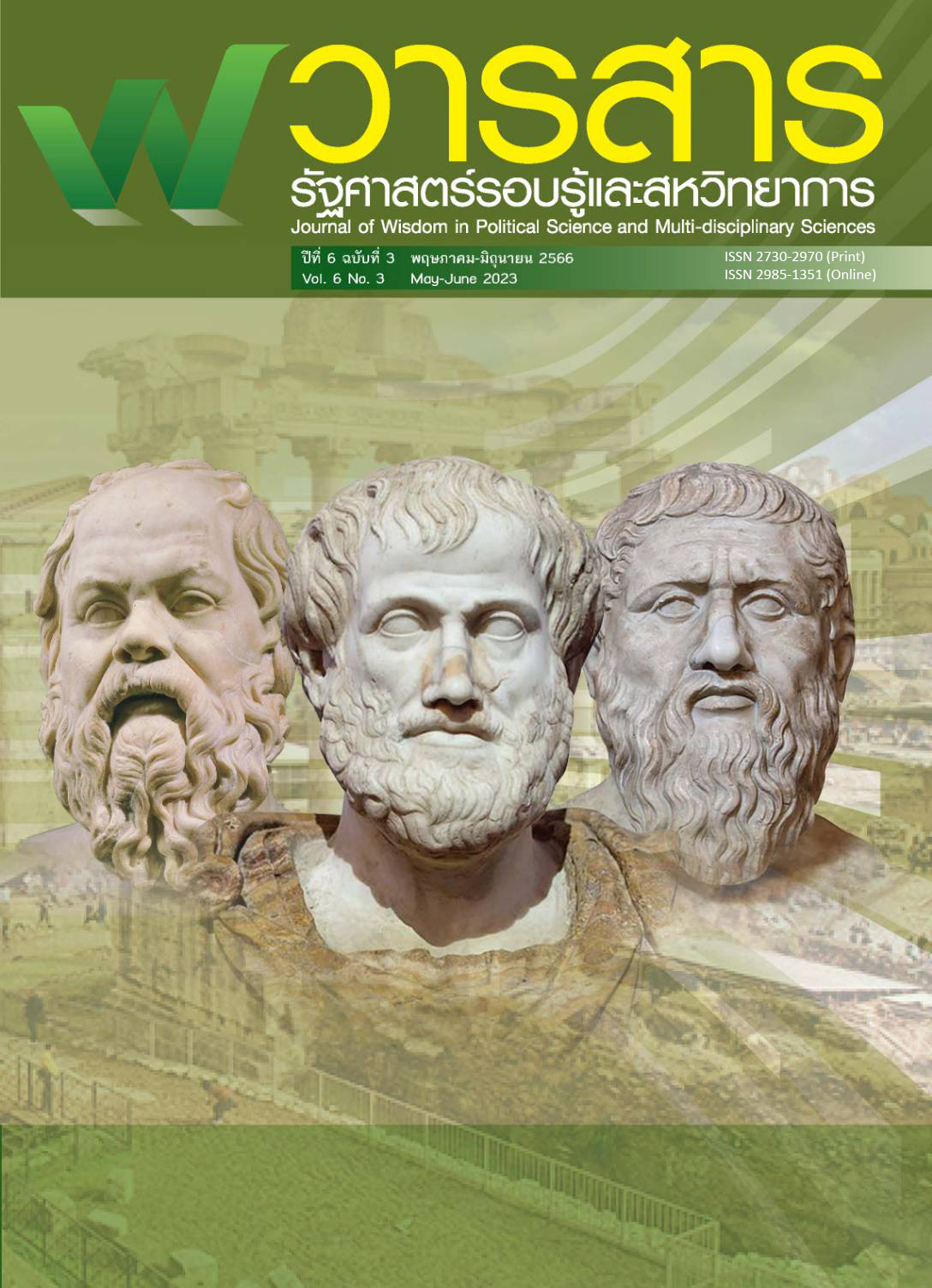Political Participation of Suan Sunandha Rajabhat University Students
Main Article Content
Abstract
A Study of Political Participation of Suan Sunandha Rajabhat University Students Its purpose is 1. To study the political participation of students of Suan Sunandha Rajabhat University and 2. To compare personal factors and political participation of students of Suan Sunandha Rajabhat University. This research is a quantitative research. which uses questionnaires as a tool to collect data from a sample of 392 students from Suan Sunandha Rajabhat University. The data were analyzed by frequency distribution, percentage, mean, standard deviation. Test the hypothesis by determining the t-test, One-way ANOVA or F-test. Statistically. The results showed that
Political participation among students of Suan Sunandha Rajabhat University was at a high level (= 3.92). The item with the highest level of participation was the complaint aspect. The average was at a high level (= 4.05) on the assembly aspect was at a high level (= 3.97) and the election aspect. The mean was at a high level (= 3.84) respectively. The item with the lowest level of participation was the aspect of expressing opinions. The mean was at a high level (= 3.80). The results of the study comparing personal factors and political participation among students of Suan Sunandha Rajabhat University found that Suan Sunandha Rajabhat University students with different personal factors Political participation was significantly different at the .05 level. It was found that students of Suan Sunandha Rajabhat University had different personal factors. Political involvement differs in gender. For the couples analysis, female political participation had higher levels of return on political participation than males. In terms of age, there was no significant difference in political participation in all aspects at the .05 level and students with different years in conclusion, the 4th year students had a significantly higher level of political participation than the 1st year students at the 0.05 level. Suggestions in the research found that universities should open spaces for students to have the opportunity to express political opinions in order to promote democratic development. Should open space for students to have the opportunity to express their political opinions to promote the development of democracy.


